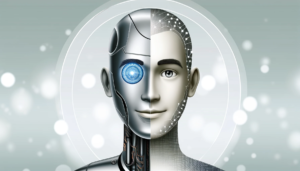Artificial intelligence (AI)

Artificial intelligence (AI) is a branch of computer science that deals with the development of computer systems that can perform tasks that usually require human intelligence. These include speech recognition, learning, planning and problem solving. AI systems are designed to learn independently and adapt in order to fulfil their tasks more efficiently.
The Term artificial intelligence was first used in 1956 at the Dartmouth Conference, a meeting of scientists from the fields of computer science and psychology who aimed to develop machines that could think. Since then, AI research has gone through various phases, including periods of optimism, during which significant progress was made, followed by KI-WintersThe AI industry has experienced a period of stagnation due to exaggerated expectations and insufficient funding. In recent years, however, there has been a resurgence of interest and investment in AI technologies, driven by advances in computing power, availability of big data and improvements in learning algorithms.
Current AI systems are often based on machine learning (ML) and in particular deep learning, a specialised ML technique based on artificial neural networks with many layers ("deep" networks). These systems have shown remarkable capabilities in image and speech recognition, natural language processing (NLP) and in predicting patterns within large amounts of data. Current applications range from improving customer service experiences through chatbots to assisting in medical diagnostics.
The The future AI harbours enormous potential for almost all areas of human life and the economy. Experts predict significant advances in automation that could not only increase productivity in manufacturing, but also take over complex tasks in areas such as healthcare, finance and education. Other developments could include autonomous driving, personalised medicine and improved climate models, to name but a few.
The Advantages of AI are manifold. It can help to reduce human error, increase efficiency and productivity, provide new insights into large amounts of data and take on tasks that are too dangerous or monotonous for humans. AI has the potential to accelerate solutions to complex global challenges such as climate change and disease.
Despite the promising benefits, AI also raises important ethical, social and economic issues. These include concerns about data protection, security and potential job losses due to automation. The development of AI systems that can reinforce prejudice or discrimination is another challenge. There are also concerns about control over advanced AI systems and potential use for harmful purposes.
Artificial intelligence represents a dynamic and fast-growing field that has the potential to fundamentally change the way we live, work and interact. While it offers enormous opportunities, it also requires careful consideration of the associated
Their development and application must therefore be accompanied by ethical considerations and regulatory measures to ensure that they are used for the benefit of all.
